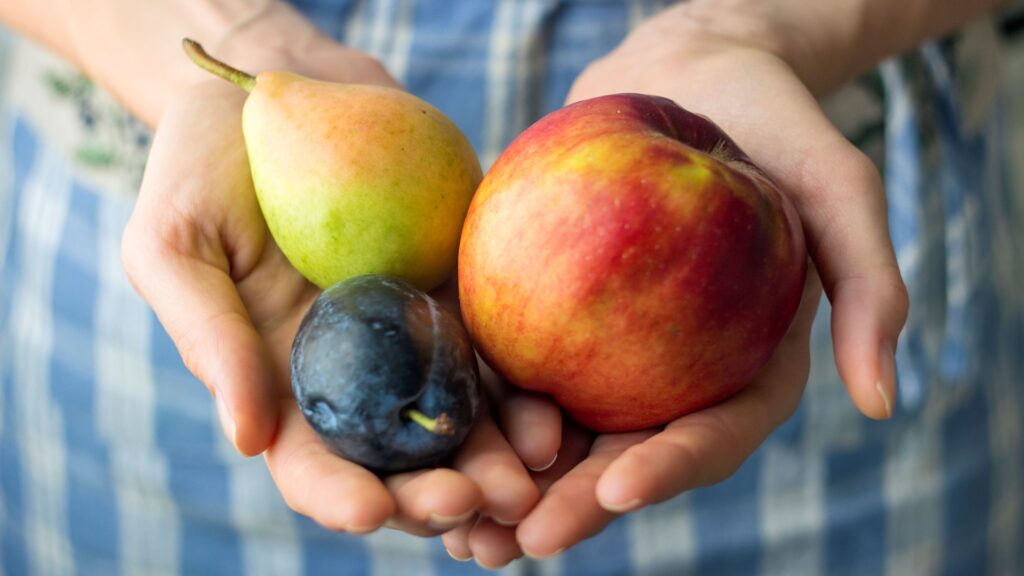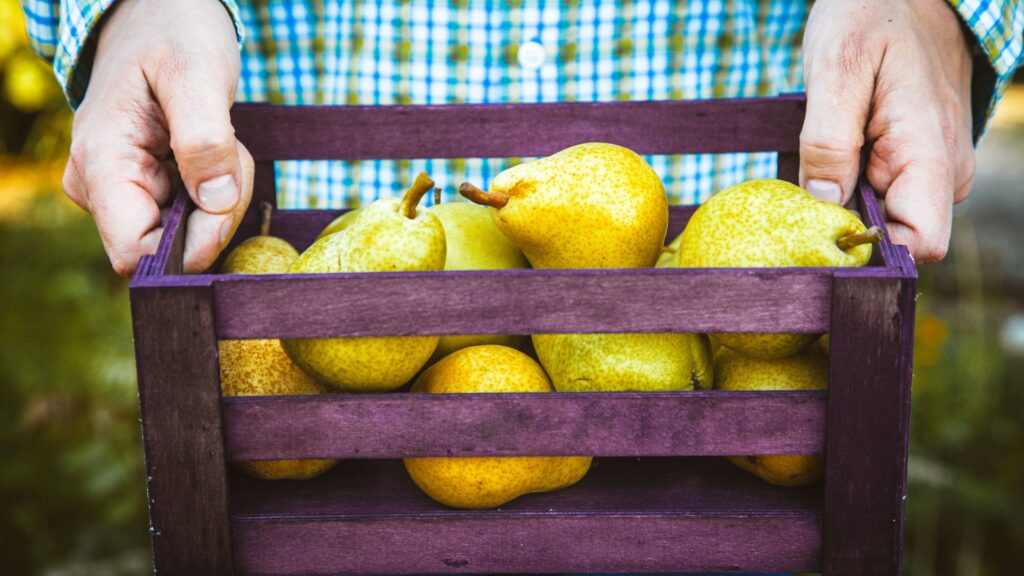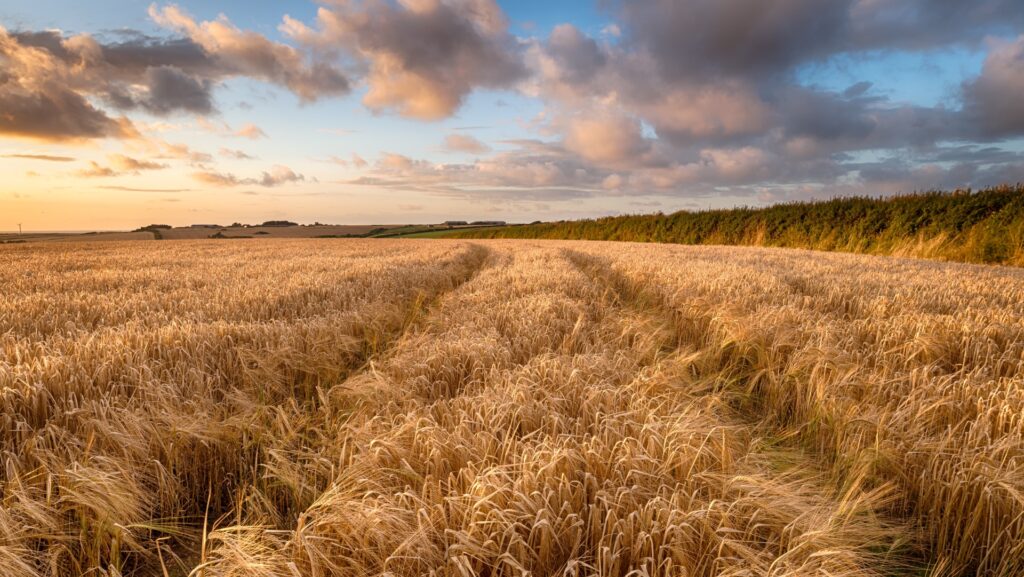Discover Shavuot: Ancient and Modern Meanings of the Festival of Firstfruits
Watch this video by Yehuda Bachana or read the essence of this teaching below.
Shavuot is a central holiday in the Scriptures, and one of the Jewish ‘Three Pilgrimage Festivals,’ or in Hebrew: ‘Shloshet Haregalim’ (‘regel’ means ‘foot’), which also includes Passover and Sukkot. During the First and Second Temple period, the people of Israel would ascend to Jerusalem on foot to celebrate these festivals.
In these modern times, it might be easier to brush past the importance and meaning of the holiday, and so it's very important that we learn and teach future generations about the appointed times of God and their meaning for our lives here and now.
The Meaning of Shavuot

‘Shavuot,’ literally means ‘weeks,’ because it’s celebrated at the end of seven weeks of counting from the second day of Passover (Click here to learn more about the Counting of the Omer). In the Torah, Shavuot has other names, such as ‘Yom HaBikkurim’ (or ‘Day of Firstfruits’) as it appears in Numbers 28:26, and ‘Chag HaKatzir’ (the ‘Feast of Harvest’) as it appears in Exodus 23:16.
Customs
According to tradition, the Torah was given on this very day at Mount Sinai. Therefore, most of the customs of the holiday are related to the receiving of the Torah, and the Torah is studied throughout the night. It’s also customary to eat dairy products like cheesecake, cheeses, quiche, and pasta with cream sauce. The Book of Ruth is read, and people wear white clothing as a sign of purity and spiritual renewal.
A Messianic Holiday
Shavuot is also a Messianic festival, because of the giving of the Torah and of the Holy Spirit. Acts 2 describes that:
“When the day of Pentecost had fully come, they were all together in one place...”
A literal translation from the same verse in Hebrew text would be:
"On the day the seven weeks are completed...”
This refers to the 7 weeks during which we count the Omer, as well as to Shavuot, which shows the relevance of this feast in the life of Yeshua and His disciples.
Wedding Day
It’s customary to view Shavuot as the wedding day between the People of Israel and God, which took place at Mount Sinai. The Torah is seen as the ‘ketubah,’ the ‘marriage contract’ that establishes the relationship between God and us.
In fact, the image of a wedding between God and His people is the background for all the metaphors in the New Testament regarding the Messiah and His bride (Israel and the Body of Messiah). It’s also the background for many of Yeshua’s parables, which use the image of a wedding.
Israel as God’s Bride

Yeshua uses an already existing image of Israel as God’s bride. This image dates back to the times of the prophets. Let’s take Jeremiah 2:2, for example:
“Thus says the Lord, ‘I remember the devotion of your youth, your love as a bride, how you followed me in the wilderness, in a land not sown.”
The People of Israel followed God during a honeymoon in the wilderness. For forty years, they didn’t lack a thing and lived from God’s open hand, day by day: their clothes and shoes didn’t wear out, and God surrounded them at night with the pillar of fire, and during the day with the pillar of cloud. He also provided them with water and food on a daily basis; each day of this desert journey was an open and great miracle.
The People of Israel witnessed how God’s glory descended on Mount Sinai. They also witnessed God’s glory descend on the Tabernacle that the people built in the desert as a gift to God, after which He dwelled among them. That’s why this period is seen as the honeymoon between God and Israel, His bride.
Yeshua’s Parables
This picture of Israel as God’s bride is the background for Yeshua’s parables, including the one about the Ten Virgins in Matthew 25 (where only half of them came prepared for the wedding). Here, Yeshua encourages us to be ready—day by day and hour by hour—for the coming of the Bridegroom. And who’s the Bridegroom? Of course, that’s Yeshua the Messiah.
Festival of Firstfruits Without a Temple
In addition to being the festival of the giving of the Torah and a symbol of a wedding, Shavuot is also known as the ‘Festival of Firstfruits.’ Nowadays, the theme of ‘Firstfruits’ might remain mostly untouched, especially since the commandment of the pilgrimage no longer applies without a Temple. In addition, we lack the agricultural setting from the biblical times, which makes it impossible to present our own firstfruits as part of the commandment prescribed in Deuteronomy 26:1-11. Therefore, today we will give Shavuot a Messianic flavor.
Firstfruits and Gifts
The Torah defines the firstfruits as: “the first of all the fruit of the land” (Deuteronomy 26:2). These would be brought to the Temple by the inhabitants of the Land of Israel. In addition, the one bringing the firstfruits would make a declaration, which basically says: “Things were bad, we were lost, but God intervened and saved us, and now—now it is good. And behold, I present the blessing of God; I bring this fruit as an expression of gratitude” (paraphrased from Deuteronomy 26:1-11).
Even without a Temple today, we still have our houses of prayer (our congregations). God has indeed intervened and saved us; the main point of this holiday is expressing gratitude to God for all the goodness and blessings He has poured onto our lives, as it is written:
“Then you and the Levites and the foreigners residing among you shall rejoice in all the good things the Lord your God has given to you and your household.” (Deuteronomy 26:11)
Outside of Israel
If you read this outside of Israel, you might wonder, “How is this relevant to me? After all, the firstfruits were for the residents of the Land of Israel.” Yet, our faith in Yeshua the Messiah makes us brothers and sisters who anticipate the same Heavenly Kingdom. The nations are also grafted into the olive tree, thanks to Yeshua the Messiah. Paul says that Yeshua broke down the dividing wall:
“Consequently, you are no longer foreigners and strangers, but fellow citizens with God’s people and also members of his household, built on the foundation of the apostles and prophets, with Messiah Yeshua himself as the chief cornerstone.” (Ephesians 2:19–20)
Amen to every word here! We are related, we are one family, through the blood of Yeshua the Messiah. We are equal citizens and subjects of the same King, who sits on the throne of David and teaches us:
“The eye is the lamp of the body. If your eyes are healthy, your whole body will be full of light. But if your eyes are unhealthy, your whole body will be full of darkness. If then the light within you is darkness, how great is that darkness!” (Matthew 6:22-23)
Our Attitude
It all begins with our perspective and attitude. If we come from a place of faith and light, just like Yeshua describes, then we see and experience the good and the blessings. And, how do we maintain a good eye, meaning: a good and positive attitude? By giving thanks to God.
Shavuot and Gratitude

When we study the commandments concerning Shavuot and delve deeper into its lessons and values, we understand that the bringing of the firstfruits was meant to express our gratitude to God for His grace and blessings. That’s something we can still do, which makes the firstfruits still relevant today.
Sharing our Blessings
We can give God from our own firstfruits, and share from our many talents, income, and time, which God blessed us with in the first place. Throughout the Scriptures, Yeshua compares us to fruit trees, and thus, He expects our lives to be fruitful. The New Testament describes a variety of gifts, talents, and abilities (Romans 12:6-8). Some people are naturally good at helping out or doing physical work, while others have a spiritual gift or know how to make peace. As believers, we should each play a role and contribute to our congregation and society with the gifts God has given us.
Parable of the Talents
In this spirit, let’s take a moment to read Yeshua’s Parable of the Talents in Matthew 25. God has entrusted each of us with different amounts of talents. Yeshua tells how a rich man goes on a journey and leaves his wealth with three servants. Upon his return, he finds that two servants were faithful and responsible, while the third chose to stay passive and said:
“Master, I knew you to be a hard man, reaping where you did not sow, and gathering where you scattered no seed, so I was afraid, and I went and hid your talent in the ground. Here, you have what is yours.” (verse 24-25)
The third servant didn’t use his gifts and abilities to contribute to the Kingdom of Heaven, as if he buried his talents.
Undoubtedly, the difficult part of this parable is the claim of the third one, who stayed passive and didn’t invest, and then blamed his master by calling him a ‘hard man’ for “harvesting where you did not sow and gathering where you did not scatter.” Does God harvest where He didn’t sow, and gather where He didn’t scatter seeds? He absolutely does!
Perhaps, it might feel somewhat unfair to 'have to share' what's ours. And yet, these talents were given to us as a blessing for our lives. Additionally, it's quite amazing that we have the power and ability to use them to build up the Body of Messiah and the Kingdom of Heaven. Our personal, unique set of gifts completes the gifts that were given to others. By sharing from what was given to us, we give back a little of what was given to us by God in the first place.
Fruit Trees and Firstfruits
This is exactly what the Feast of Firstfruits is about, as God requires our firstfruits. Interestingly, the Torah forbids us to eat from our fruit trees until the fourth year:
“When you come into the land and plant any kind of tree for food (...) Three years it shall be forbidden (...) in the fourth year all its fruit shall be holy, an offering of praise to the Lord. (...) But in the fifth year you may eat of its fruit.” (Leviticus 19:23-25)
Book of Ruth: Sharing the Edges of our Field

This idea of firstfruits doesn’t only apply to fruit trees. The Word of God commands us to leave the edges of our fields and vineyards for those in need (Leviticus 19:9-10). In other words, God commands us to offer our first crops to Him and leave the edges of our fields for the needy, who may in fact enter our private land and harvest our produce, just like we read in the Book of Ruth.
Yeshua’s Words and Ruth
At Shavuot, Yeshua’s words from Matthew 25:24 are fulfilled through the story of Ruth, who also harvests where she didn’t sow and gathers where she didn’t scatter. Ruth enters someone else’s field, that she didn’t own or plant, and yet, thanks to the Word of God, she’s granted this blessing to glean Boaz’ field.
Who are the Needy?
And who are the poor and needy? Who are the sick? Who benefits from the work of my hands? Yeshua defines these people for us:
“Then the King will say to those on his right, ‘Come, you who are blessed by my Father, inherit the kingdom prepared for you from the foundation of the world.”
Why?
“For I was hungry and you gave me food, I was thirsty and you gave me drink, I was a stranger and you welcomed me,” When did all this happen? We want to serve God, and how do we serve Him? How do we recognize Him? And Yeshua answers: “And the King will answer them, ‘Truly, I say to you, as you did it to one of the least of these my brothers, you did it to me.’” (Matthew 25:34-35, 40)
God Harvests Through Us
Once again, we return to the words of the third servant, who calls his master ‘a hard man’ who reaps where he didn’t sow and gathers where he scattered no seed. And that’s what God requires of us. We’re required to work the ground, sow, water, invest, and labor. Then we bring from those crops, results, or income to the House of the Lord, and also give to the poor. God truly does harvest where He didn’t sow, and He does that through us. In this broken world, and as His children, we’re called to share from the light, and the gifts and talents God gave us first.
Shavuot Sameach!

